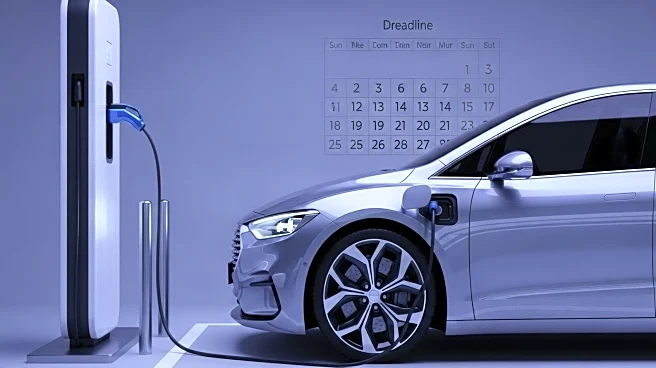What is the story about?
What's Happening?
As the federal tax credit for electric vehicles is set to expire on September 30, consumers are rushing to purchase EVs to take advantage of the incentive. The tax credit, part of a mega-tax bill, offers up to $7,500 for new EVs and $4,000 for used EVs. Car shopping experts report a surge in demand, with nearly half of consumers accelerating their purchases. Analysts predict a significant drop in EV sales once the credit expires.
Why It's Important?
The expiration of the federal EV tax credit could lead to a sharp decline in EV sales, impacting the market and consumer adoption. The credit has played a crucial role in making EVs more affordable, and its removal may slow the transition to electric vehicles. Automakers and policymakers may need to explore alternative incentives to sustain EV growth.
What's Next?
As the deadline approaches, consumers and dealers are likely to experience increased activity in the EV market. After the expiration, the industry may face challenges in maintaining sales momentum. Automakers may introduce new models and pricing strategies to attract buyers without the federal incentive.
Beyond the Headlines
The situation highlights the importance of government incentives in driving EV adoption and the need for sustainable policies to support the transition to clean energy. The expiration of the tax credit could influence future legislative decisions regarding environmental and energy policies.















